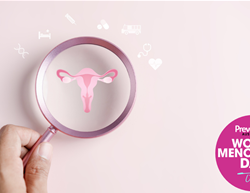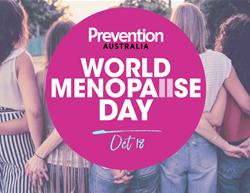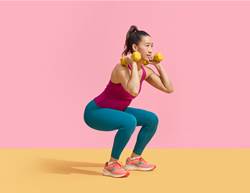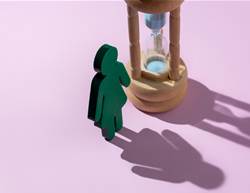For many women, perimenopause and menopause bring a wave of changes that can feel unsettling. From stiff joints and hot flushes to shifting body shape and unexpected fatigue, the body can sometimes feel unfamiliar. It’s not surprising that confidence can take a hit during this stage of life.
But research shows that women are far from alone in feeling this way. Thousands report that the physical and emotional changes of perimenopause have impacted how they see themselves. The good news is there are simple, evidence-backed strategies that can help restore confidence and strengthen body positivity along the way.
Understanding our changing bodies
The changes during the onset of perimenopause are part of a pattern many women experience. Fluctuations in oestrogen and progesterone can affect almost every system in the body — influencing how and where fat is stored, impacting energy levels, contributing to joint and muscle aches, and even altering sleep, mood, digestion, and temperature regulation.
For some women, this might mean noticing more belly fat, feeling more fatigued, waking with stiffness, or dealing with unpredictable hot flushes and bloating. Understanding that these are normal changes that aren’t unique to you can make help shift our perception that our bodies are failing us.
Focus on health, not the scale
One change many women struggle with during perimenopause is extra weight settling around the midsection. As oestrogen and progesterone levels shift, extra fat can be laid down in this area which can affect body image as well as physical health.
If this is something that bothers you, managing this with a healthy diet and regular exercise - particularly strength training - can help minimise the creep. These habits don’t only improve how our physical fitness, they can improve our mood and have a huge impact on how we feel about ourselves.
Changing your health goals to focus on energy and strength instead of the number on the scales can help body confidence. A 2017 study found that both aerobic and strength exercises during the perimenopausal to postmenopausal transition consistently improved vitality and mental health, significantly improving women’s body image.
The key is to choose activities that feel good and are sustainable for you — try a walk on the beach, dancing in your living room, or building strength with weights. When movement is done for enjoyment or health, rather than weight-loss, research shows it’s more likely to improve body image over time. This shift in focus makes it easier to stick with and can increase feelings of energy and elevate mood, helping you feel more at home in your own skin.
Practise self-compassion
How we talk to ourselves can be just as important as what we do physically. Self-compassion plays a vital role in confidence and body image. Something as simple as pausing to thank the body for what it allows us to do can shift the inner dialogue. Over time, this habit helps us see our bodies less as something to criticise and more as something to care for and value.
Find and offer support
How we feel about our bodies isn’t shaped only by what we see in the mirror — it’s also influenced by the company we keep and the images we absorb. Evidence suggests that awareness of beauty ideals, along with perceived pressure from media and peers, is strongly linked to body image difficulties. Social media can make it easy to compare ourselves to celebrities or influencers with unrealistic physical goals, often filtered or enhanced. That comparison rarely leads anywhere helpful.
Instead, surround yourself with people who encourage and support you, and tune out the critics. If you can’t step away from social media completely, follow role models who radiate vitality, strength, and self-assurance — rather than those chasing a so-called perfect shape. Spend time with friends who are going through similar changes, or join an online menopause support group where the focus is on shared understanding rather than comparison.
Sharing our experiences of body changes in perimenopause helps normalise them and reminds us we’re not alone.
Connect with us on World Menopause Day
Another powerful way to connect with others who understand exactly what you’re going through is to join us on 18 October at the Shangri-La Hotel in Sydney for our World Menopause Day gathering. It’s an inclusive space to share experiences, exchange support, and hear from a panel of experts covering topics such as body image, symptom management, hormone health, treatments, and overall wellbeing — all with the goal of helping women feel stronger, more informed, and more confident in their changing bodies. To find out more visit www.worldmenopauseday.com.au
Staying confident through change
Menopause is a chapter of change, but it doesn’t have to mean losing confidence. By focusing on strength, energy and kindness towards ourselves — and by connecting with others who understand — we can navigate this stage with greater ease.
By sharing what we learn and supporting each other along the way, we can replace isolation with connection and approach this stage of life with a little more confidence and a lot more kindness towards ourselves.
PROUDLY SUPPORTED BY

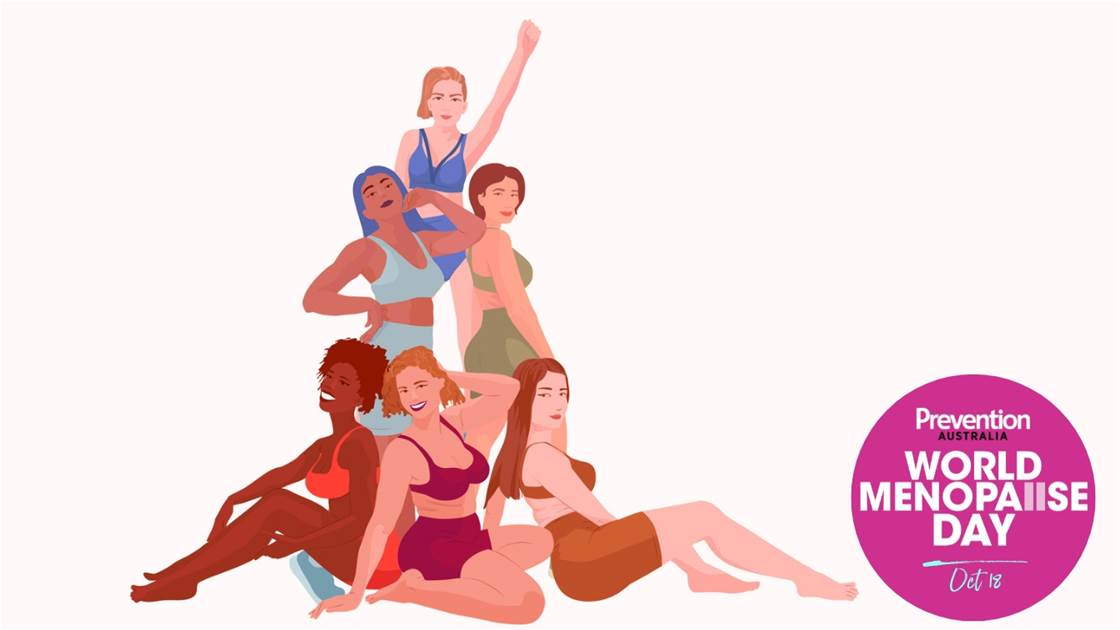


.jpg&h=90&w=90&c=1&s=1)


